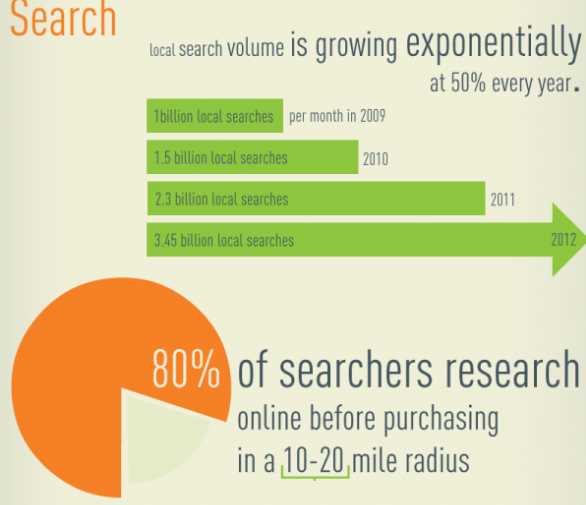
Smartphones and other mobile devices like tablets are becoming more and more popular, and an ever-increasing variety of models, prices and sizes is beginning to define new and exciting ways in how we communicate.
Based on current trends, mobile internet use will surpass desktop use in a few short years. You may have an amazing website already, but if it isn’t mobile-ready, you stand to lose a large audience.
Here are 7 reasons why you need a mobile website and some suggestions on how to get going:
#1 Your current website is not mobile-compatible.
If your current website is not mobile optimized, chances are it is a nightmare for your mobile visitors to use. Smaller screen sizes and mobile web browsers mean your website displays differently on a Smartphone.
Without mobile-optimized code, most websites force mobile users to scroll or zoom, or become unusable because the content is squished together. Fonts can become so small that they are unreadable, and if your website uses Flash, you can be certain no one on an Apple device will be viewing it.
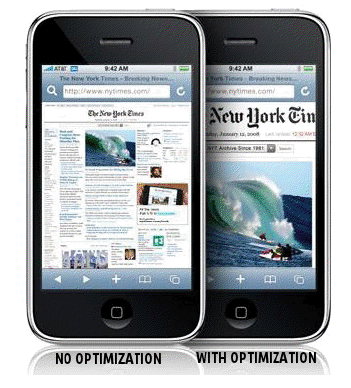
Mobile websites are not just minimized versions of your main website – they must be responsive, fast and designed with the mobile user in mind. Besides adapting to the smaller screen of a mobile device, mobile websites are easier to navigate using touch and help visitors get to the information and features they need faster.
#2 Mobile Search is a universe of its own.
Everyone seems to live a fast-paced life nowadays, depending on their mobile devices to get information. What’s more, they expect it instantly.
Google®, Bing® and Yahoo!® each index mobile and mobile-compatible sites separately from non-mobile sites and are investing heavily in developing faster and better tools for mobile search to meet this demand.
After social networking, searching is the second thing mobile internet users do the most with their mobile web browsers. The earlier you adopt new technologies, the more time you have to build high rankings and secure a highly visible position.
As an added benefit, you are more likely to be discovered and found by local mobile users thanks to the way mobile search includes your website in local search results, maps and other localized applications.
With 50% of local searches being done on a mobile device, that’s a big deal!
#3 More people buy mobile phones and tablets than desktop computers.
The shift in how many people access websites using their handheld mobile device has been dramatic to say the least. A staggering 2 billion people worldwide have a mobile device. More and more people will be browsing the web and searching for you using these devices, so capitalizing on this growing demand is critical for your future success.
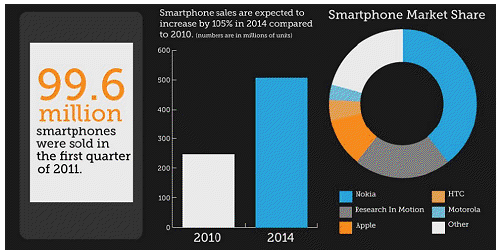
Because of the growing popularity of tablets and Smartphones, having a mobile website is no longer a novelty targeting the affluent. Rapidly developing nations have far more Smartphone users than desktop computer users, which means your global reach increases significantly by building a mobile web presence.
#4 Not everyone is doing it.
It sounds counter-intuitive, but the name of the game is to stay ahead of the curve. The mobile web is still an emerging idea so your competitors may not be aware of the need to optimize for mobile. Less than 5% of online businesses have a website that is compatible with mobile. By going mobile now, you will be more experienced and in tune with your mobile market later, which is a huge competitive advantage.
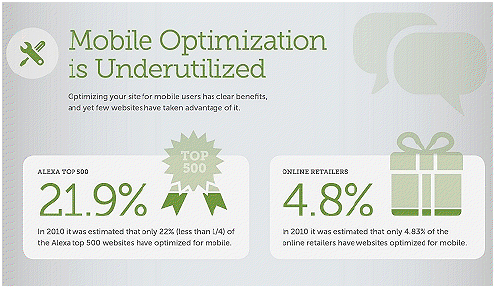
Mobile traffic to sites designed for the desktop Web has increased in 2011 from 8.3% to 11%, a 32% increase!
#5 People spend money on mobile.
42% of mobile internet users earn over $80,000 a year, and spend more on their mobile devices and mobile activities. In 2009, $1.6 billion was spent on the purchase of goods through mobile apps and websites. This is exciting news if you are an entrepreneur selling goods or services online.
According to mobile research, people have more trust and confidence in buying from a handheld device over their desktop computer, likely due to associating desktops with malware and other threats.
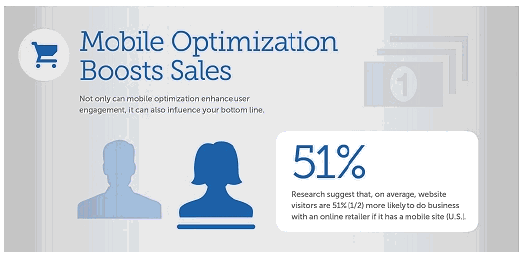
Shopping isn’t the only way mobile users are spending money. Budgets for mobile marketing are expected to exceed 500 million by 2012, a huge indication of just how booming the mobile industry is becoming.
This translates into more opportunity for your business from an advertising perspective, and potentially more ad revenue for your mobile website.
#6 Mobile sites are faster and more accessible.
Speed really does matter. A huge advantage of mobile websites is the compact size and lightweight approach to content, allowing it to load faster than a full website.
You must keep in mind that the majority of mobile internet users are connecting via 3G, which is considerably slower than the broadband internet speeds enjoyed by desktop users. Mobile users tend to be on the go or in the presence of company – if your website is not mobile optimized and loads too slowly, your visitors attention span wanes and it is more likely they will move on to something else.
Mobile websites give them precisely what they are looking for quickly and simply.
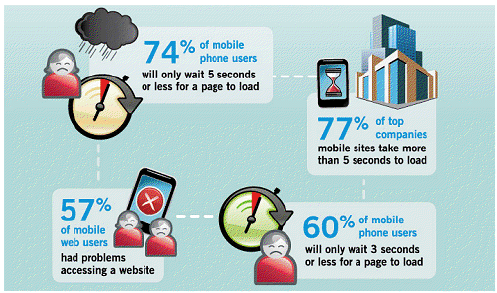
#7 Mobile websites are cost-effective.
Money is usually the obstacle in diving into any web project but your internet presence is the single most important investment you can make in getting yourself noticed. In most cases, mobile websites are inexpensive and much easier to develop.
Depending on how many bells and whistles you need to include and which devices you want to target, mobile websites can be created professionally by adding optimizations to your current website, or be built free of charge without any coding knowledge whatsoever.
